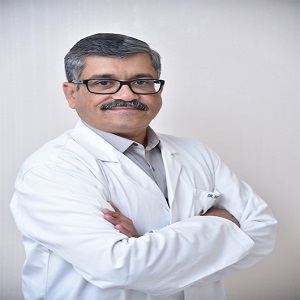Parkinson Specialist Gurgaon
An Introduction
Parkinson’s disease is a neurological disorder that mostly impairs mobility. It is caused by the dysfunction or death of nerve cells in the brain that produce dopamine, a neurotransmitter that helps coordinate movement. Individuals with Parkinson’s disease have difficulty with movement control and coordination when dopamine levels are low.
Sumit Singh, a top student at the All India Institute of Medical Sciences and a BL SONI Gold Medalist, joined the institute as a faculty member in 2000. In 2002, he created India’s first government-run headache clinic at AIIMS.


Best Doctor For Parkinson Disease In Gurgaon
Dr. Sumit Singh is a well-known Parkinson Specialist in Gurgaon who has received several awards. In addition to his expertise in headaches, he has made substantial advances in Parkinson’s disease therapy. He co-authored the Indian subcontinent’s Parkinson’s care guidelines and has played a key role in pioneering novel techniques to manage the ailment. Notably, he pioneered the use of Botulinum toxin for headache therapy in India in 2002, proving his dedication to discovering new medicines.
Expanding his passion, he eventually used this therapy procedure on patients with trigeminal neuralgia, demonstrating his commitment to improving the lives of those with neurological illnesses other than Parkinson’s.
Symptoms Of Parkinson's Disease
Parkinson’s disease causes a variety of symptoms, which might vary in severity and course across people.
Common symptoms include:
- Tremors: Involuntary shaking or trembling, typically beginning in the hands or fingers.
- Muscle Stiffness: Rigidity or stiffness in the muscles, which can be uncomfortable and restrict mobility.
- Bradykinesia: Slow movement, making basic chores more difficult and time-consuming.
- Postural Instability: Difficulty keeping balance, which increases the risk of falling.
- Changes in Voice and Writing: Softening or slurring of voice, as well as degeneration in handwriting.
Non-Motor Symptoms: Parkinson’s disease can cause non-motor symptoms such as sadness, anxiety, constipation, and sleep problems
Diagnosis Of Parkinson’s Disease
Parkinson’s disease is diagnosed by a complete examination by the Best Doctor for Parkinson Disease in Gurgaon, as there is no one conclusive test for the disorder.
Diagnostic techniques include:
1. Medical History: A thorough investigation of the patient’s symptoms and medical history.
2. Neurological Examination: A complete physical examination from the Best Doctor for Parkinson Disease in Gurgaon focuses on the neurological symptoms linked with Parkinson’s disease.
3. Imaging Studies: An MRI or CT scan are performed by Dr for Parkinson’s Disease to rule out other disorders and assess brain anatomy.
4. Dopamine Transporter Imaging: Specialized imaging techniques can detect dopamine levels in the brain and help in diagnosis.
Treatment Options For Parkinson's Disease
While Parkinson’s disease is incurable, a variety of treatments by Dr for Parkinson’s Disease try to control symptoms and improve quality of life.
.
Diagnostic techniques include:
1. Medications: Dopamine-replacement medications such as levodopa, dopamine agonists, and MAO-B inhibitors are frequently used to treat symptoms by refilling dopamine levels.
2. Physical Therapy: Exercise programs designed specifically for people living with Parkinson’s can help improve mobility, strength, flexibility, and balance.
3. Occupational Therapy: The Best Doctor for Parkinson Disease in Delhi-NCR help patients adjust daily tasks to their abilities and develop methods for increased independence.
4. Speech Therapy: Speech therapists help people in overcoming speech and swallowing issues caused by Parkinson’s disease.
5. Deep Brain Stimulation (DBS): In severe situations, surgically implanting electrodes in specific brain areas can aid in regulating aberrant brain activity and alleviating symptoms.
Noteworthy Advice From Parkinson Specialist In Gurgaon
Adapting to life with Parkinson’s disease involves developing good lifestyle choices and seeking help:
.
- Regular Exercise: Regular physical exercise can increase mobility, reduce stiffness, and boost general well-being.
- Nutritious Diet: Consuming a well-balanced diet rich in fruits, vegetables, whole grains, and lean meats promotes general health and may reduce some symptoms.
- Social Engagement: Maintaining contact with friends, family, and support groups can give emotional support and alleviate feelings of loneliness.
- Stress Management: Mindfulness, relaxation exercises, and hobbies can help decrease stress and manage symptoms.
- Commitment to Treatment Plans: Taking prescribed medications and treatment regimens as instructed by the Best Doctor for Parkinson Disease in Delhi-NCR is critical for symptom control and illness management.
The Bottom Line
Approaching Parkinson’s disease requires an overall approach that includes earlier detection, personalized therapies, and lifestyle changes. Individuals can successfully reduce the effect of Parkinson’s disease on their lives by detecting symptoms early on, using suitable treatments, and adapting daily routines. Seeking help from the Best Doctor for Parkinson Disease in Delhi-NCR, caregivers, and support networks is crucial to this journey, as it builds a friendly environment suited to managing the condition’s complex problems.
Individuals with Parkinson’s can improve their quality of life via proactive participation and a supporting network, allowing them to pursue their goals and live despite the disease’s limitations.
OPEN HOURS
-
Artemin Hospital Sector 51, Gurugram, Haryana - 122001
- Mon - Sat 12pm to 5pm
-
Artemis life Hospital, New Friends Colony, New Delhi
- Wednesday - 4pm to 7pm
-
Medharbour Hospital, Sector 51, Gurgugram
- Mon - Thu 5pm to 7pm
For Appointment
-
Artemin Hospital Sector 51, Gurugram, Haryana - 122001
- 9910094615
-
Artemis life Hospital, New Friends Colony, New Delhi
- 01146583333/ 9818718658
-
Medharbour Hospital, Sector 51, Gurgugram
- 9971679666/ 9971631222/ 01242577222
